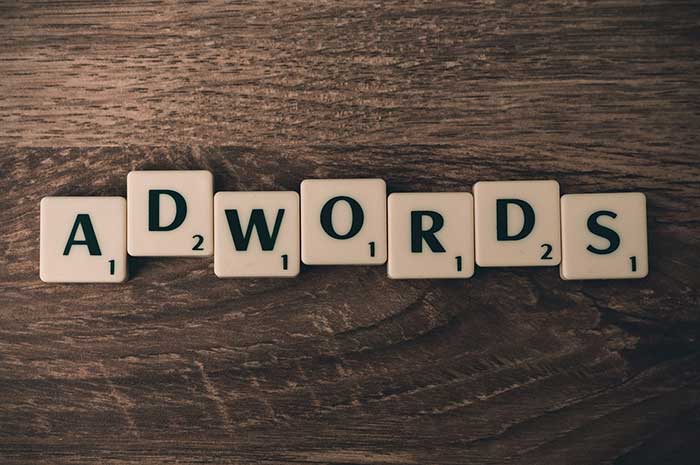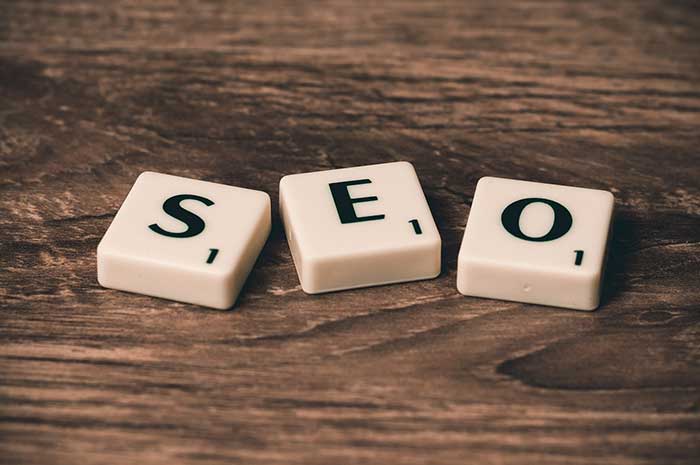Learn the basics of a website marketing strategy to figure out how it can help your online business grow faster. Samples, examples, and hilarious moments are included.
What’s Going On?
The Internet is what’s going on. Business in the 21st century is different than in any other time. In this day and age, people don’t care as much about the carefully selected materials and excellent craftsmanship as they used to. The brand and the story, the aura you create around your product (or service) are just as important.
If you want to succeed, you need to market your product just right – online, that is. In order to drive your business online, you’ve got to have a website. And if you run a website, you’re bound to have an effective marketing strategy.
Would you rather prefer acting under a certain plan and having clear goals to moving without any particular direction? If you choose the former, then this article is definitely for you.
Website Marketing Strategy Overview

Marketing strategy refers to the techniques available to a business in order to market, promote, and advertise its products/services via the Internet.
Any kind of marketing strategy (not just website) has to give answers to these three questions:
- What are you going to do to reach your goals?
- How exactly are you going to do it?
- What is the expected outcome?
Although the questions may seem quite obvious to some of you, they’re actually not that easy to answer. Let’s study these questions in detail.
1. What Are Your Goals?
By goals I mean anything, literally anything – increase revenue, attract more visitors, double your income etc. Any goal is good as long as it’s SMART (Specific, Measurable, Achievable, Realistic, and Time-bound).
Once you know what your goal is you need to figure out what actions you should undertake to reach that goal.
2. How Exactly Are You Going to Reach Your Goals?
This is where you specify when, where and how exactly you are going to do what you’ve already listed in question #1.
3. What Is the Expected Outcome by the End of a Certain Period?
To become the King of the World by selling flowers around the corner on weekends may sound like a good strategy unless you introduce a deadline into the picture. Once it’s there, you will realize that your initial strategy is not as great as it would seem and it’ll probably take you around 10,000 years to accomplish.
Yet, a good deadline always comes with a target number – exact revenue growth percentage, sales increase rate, or desired conversion rate. Please, include both.
EXAMPLE

To illustrate the things I’ve just mentioned, let’s create a simple strategy for a fictional online bicycle shop.
- The goal is to increase the monthly revenue from $1,000 to $10,000 by the end of the year
- Run a PPC ad campaign on Facebook to attract the target audience; launch a special offer (buy two bikes and get a bike lock for free)
- Attract 5,000 new unique visitors from Facebook monthly; get a 30% increase in monthly sales due to the promo campaign
Marketing Strategy Components
Now that you understand the importance of the marketing strategy for your business, it’s time to talk about the specific components that form the foundation for the most web marketing strategies. There are six such components.
- Pay per click advertising (PPC)
- Search engine optimization (SEO)
- Content Marketing
- Social Media Marketing (SMM)
- Conversion rate optimization (CRO)
- Email Marketing
These strategies can be employed both individually and together with each other as long as it makes sense for your business. However, if you want to achieve the maximum effect, you need to combine and mix the different strategies. This way they will complement each other.
1. Pay Per Click Advertising (PPC)

Strictly speaking, it’s not even a strategy at all. You’re just paying some money to promote your business on the search engine results page (SERP) by getting featured as one of the “sponsored results” on top of that page.
It’s simple: you know what your target audience is (well, at least I hope so 🙂 ) and what they should search for to stumble upon your website. With that knowledge, you:
- create an account at Google AdWords
- come up with the right keywords for your business
- set up a campaign and wait for the visitors to flood your website
In PPC advertising, you pay only for the actual clicks on your ad, not the impressions. PPC advertising is basically the sole reason for the existence of search engines (Google, Yahoo, Bing). PPC is also available on the social networks (Facebook), albeit, in a slightly different form.
Here’s an article to get you started on PPC right away – “What is PPC? How to Set Up a Successful Pay Per Click Campaign.”
PROS
- very clear to understand and easy to set up and manage
- requires little knowledge of Internet marketing at the beginning stage (the further you go, the more you’ll need to know)
- produces guaranteed results for landing pages
CONS
- not scalable (the more you want, the more you have to pay)
- top keywords are bid-based, which means they cost more
2. Search Engine Optimization

There’s so much has already been (and is still being) said about SEO that I can’t find the right words. Perhaps, a link to my other article on the subject? 🙂 It comes in the form of a checklist and is extremely helpful for SEO beginners – it’s called “On-Page SEO Checklist: How to Build a Perfectly Optimized Website Page.”
As for the SEO, it’s something that you will have to learn eventually, whether you like it or not. Modern websites depend on SEO like Justin Bieber fans depend on his next Instagram post. 🙂
SEO itself is a process of affecting your website visibility in the search engine’s organic (non-paid) results. In short, SEO has the same goals as PPC advertising – the only difference is that you don’t have to pay for it.
By applying certain techniques and following common guides and recommendations you can seriously improve your website’s rank on the search engine results page. However, no one can give you any guarantees that it will work as no one knows how exactly major search algorithms work.
PROS
- requires little investment (compared to PPC)
- allows experimenting
- produces great initial results (however, takes up a lot of time to achieve greater success)
CONS
- results are often unpredictable due to the hidden nature of search engine algorithms
- some techniques may become outdated or even punishable with every new update from Google
3. Content Marketing
Content marketing is a gimmick these days. It’s essentially the process of creating, writing, posting and managing the content on your website in a way that attracts new users and appeals to the existing ones.
By content, I mean anything that’s on the website, besides the program code. Content includes the text itself, images, videos, animations, files, documents, presentations, and, basically, everything you upload to your website.
Believe it or not but there are certain rules which you need to follow to make your content work for your website – attract new visitors and convert them into paid customers. To learn more about these rules, see this article “What is Content Marketing: Guide to Successful Marketing Strategy.”
What makes the content marketing different from any other strategy on this list is that it’s a long-term thing. Once implemented, you may expect to see the first results in a few months at best. Often it can take a year or two to yield noticeable results. But the upside is that they have a long-term effect and will last for good.
PROS:
- relatively cheap
- basic content strategy principles are easy to implement
- has a long-lasting effect
CONS:
- may take a lot of time and effort to produce decent results
4. Social Media Marketing (SMM)

SMM is another hot thing among the Internet marketers. Social media marketing combines elements of PPC, SEO and content marketing for use in social networks. You can run a PPC campaign on Facebook or figure out the best ways to compose and publish your Instagram posts to get more subscribers.
Due to the recent rise in the popularity of social networks, SMM is becoming increasingly important for the Internet marketing. It’s an essential part of any major company’s overall web marketing strategy.
PROS:
- rapidly growing potential
- easy to master
CONS:
- requires investment and time
- results are not always predictable
5. Conversion Rate Optimization (CRO)
Even though I called it a strategy, it’s simply the process of getting more out of what you already have. The term “conversion” itself usually refers to the ratio of paid customer/regular visitor. However, other applications are also possible.
For example, if you have a three-step purchase process (Sign Up, Choose a Plan, Provide Payment Details), the number of users who reached the next step divided by the number of users on the current step is also called the conversion.
CRO strategy is extremely useful for landing pages, websites with multi-step processes, and all kinds of e-commerce.
PROS:
- allows a great deal of experimenting
- can produce great results in a little time
CONS:
- results are often unpredictable and require constant A/B testing
6. Email Marketing

The final strategy on our list, this is something you have to deal with every day when you open your inbox. Companies send us emails in hope that we will perform a certain action they require us to – click on the link, read news, subscribe etc.
Email marketing is often very annoying for most people but if applied properly, it can be a great addition to your overall web marketing strategy.
A lot depends on the quality of the emails you collect and the way you collect them. Also, don’t try to view this strategy as strictly sales-y. The approach here should be more like that of the content marketing – give people some valuable information first and then ask for something in return second.
PROS:
- relatively easy to run and manage once it’s established
- builds a strong foundation for the future sales
CONS:
- may take up a lot for time to kick off
- requires constant monitoring
Conclusion
Now you should be aware of what a marketing strategy is and what some of the most popular strategies are.
The right thing to do would be share this article with your friends on the social networks – just click on one of the icons of social media, it’s that easy.
If you have further questions on the subject, please write them in comments – I’ll be glad to answer.





Excellent post. I used to be checking continuously this weblog and I’m impressed!
Extremely helpful info particularly the last part 🙂 I maintain such information a lot.
I used to be looking for this particular info for a long time.
Thank you and best of luck.
Glad I could help Jasa let me know if you have any questions
Thank you! This is definitely an impressive online site!
Thank you, Jackson. I’m glad that you found it useful.
Wow, gorgeous blog. Thnx …
Glad you found it useful Marta. Let me know if you have any questions.
The info is really helpful
Thank you, Sharon. I’m glad that you found it useful.
Great info. Lucky me I came across your blog by accident (StumbleUpon).
I’ve book-marked it for later!
Sounds good, Angelo. I’m sure you’ll find here a lot of useful information about digital branding and internet marketing in the future.